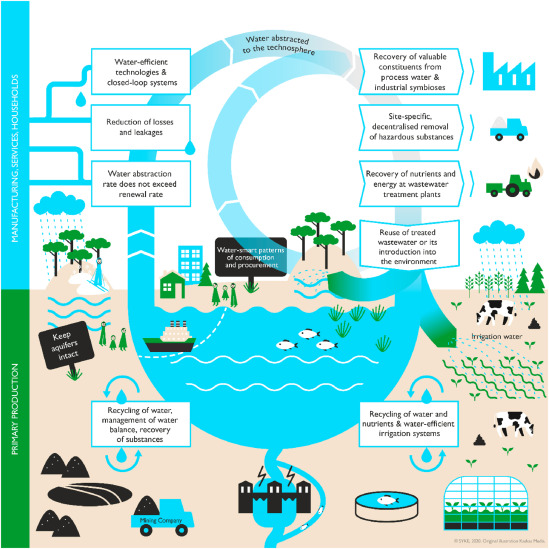
India, with its rapidly growing population, expanding industrial sectors, and vast agricultural landscape, faces significant challenges in water management. One of the most critical issues in this regard is the sustainable use and conservation of water resources. As the country moves towards a more circular economy—a system aimed at maximizing the use of resources, minimizing waste, and promoting environmental sustainability water storage plays a pivotal role. Effective water storage solutions are not just about safeguarding a critical resource, but they also support agricultural productivity, industrial growth, and urban resilience, all of which are essential pillars of India’s circular economy.
Understanding India's Water Crisis
India is home to 18% of the world’s population but has only 4% of the planet’s freshwater resources. In addition, the country faces an uneven distribution of water across its vast territory, with some regions experiencing severe water scarcity while others suffer from floods. Seasonal monsoons bring a large volume of water, but much of this is lost due to inefficient storage and distribution systems. On the other hand, the demand for water, driven by agricultural, industrial, and domestic needs, continues to rise. This growing imbalance has resulted in over-extraction of groundwater, depletion of surface water sources, and a general decline in water quality.
The circular economy model, which aims to reduce waste and optimize resource use, offers a promising solution. In such a model, water is viewed not just as a resource to be consumed but as a valuable asset that can be reused, recycled, and managed sustainably. Water storage plays a critical role in this approach, enabling water to be captured, stored, and distributed more efficiently.
The Role of Water Storage in a Circular Economy
1. Enhancing Water Availability and Resilience
In a circular economy, efficient water storage systems are crucial for ensuring the availability of water throughout the year. By capturing rainwater during the monsoon season and storing it for use during drier periods, India can mitigate the effects of seasonal water shortages. Large-scale reservoirs, ponds, and check dams, combined with decentralized rainwater harvesting systems, can help buffer the effects of droughts and floods, making agricultural and industrial sectors more resilient.
2. Facilitating Water Reuse and Recycling
One of the core tenets of a circular economy is maximizing the reuse and recycling of resources. Water storage systems facilitate this by collecting and storing water from various sources, including wastewater treatment plants, industrial effluents, and even greywater from households. By treating and recycling this water, it can be reused for non-potable purposes such as irrigation, industrial processes, or cooling systems in power plants.
3. Boosting Agricultural Sustainability
Agriculture, which accounts for about 80% of water usage in India, stands to benefit immensely from improved water storage practices. Efficient storage and management of water for irrigation can help reduce dependency on groundwater, prevent soil salinity, and improve crop yields. The introduction of modern irrigation techniques such as drip and sprinkler irrigation, in combination with effective water storage systems, can conserve water while ensuring that crops receive adequate hydration.
4. Supporting Urban Water Management
India’s rapid urbanization presents its own set of water management challenges. As cities expand, the demand for water skyrockets, often outstripping the capacity of existing water supply systems. In this context, water storage becomes an essential component of urban water management strategies. By integrating rainwater harvesting systems, urban areas can reduce their reliance on centralized water supply networks and improve water security.
Conclusion
In the context of India’s circular economy, water storage is not just about storing water for future use; it’s about managing this vital resource in a way that promotes sustainability, reduces waste, and enhances resilience across various sectors. By investing in efficient water storage infrastructure, India can create a more sustainable water supply system, reduce environmental degradation, and support its economic growth in a resource-efficient manner. The time has come to recognize the value of water not just as a finite resource, but as a critical asset that, when managed wisely, can drive India’s transition to a circular economy.


